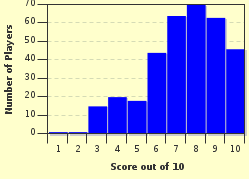Quiz Answer Key and Fun Facts
1. What basic 'form of advertising' is used to grab a consumer's attention not only in pharmaceutical ads, but in most TV commercials?
2. If you are suffering from depression for example, who decides whether a prescription is necessary?
3. Pharmaceutical drug companies advertise directly to consumers to familiarize them with their product and influence them into asking for that product by name.
4. Which country was the first to permit direct to consumer drug advertising on TV?
5. Of the following prescription drugs, which are less likely to be advertised on TV?
6. Why are generic drugs so economical when compared to the 'advertised' brands?
7. Pharmaceutical ads appeal to consumers who want to have more control over their own health care.
8. What type of medications make the most money for a pharmaceutical company?
9. Patent protection laws give the original pharmaceutical drug manufacturer exclusive rights to sell their product for 'up to twenty years' from the date of the patent filing. So how do generic versions become available to the consumers?
10. Pharmaceutical TV commercials list the benefits of their product at the beginning and at the very end of their ad. However, the potential side effects are listed very quickly somewhere in the middle. This method of advertising suggests what about the potential side effects of a prescription drug?
Source: Author
Coraline11323
This quiz was reviewed by FunTrivia editor
trident before going online.
Any errors found in FunTrivia content are routinely corrected through our feedback system.

